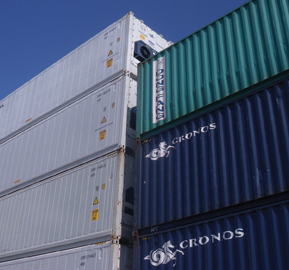The number of supply chain disruptions that businesses encountered in 2020 was higher than any other year in the 12 years of the Business Continuity Institute’s Supply Chain Resilience report, says the BCI.
The report is launching online today.
More than one in four, 27.8pc of organisations answering the survey reported more than 20 supply chain disruptions during 2020, up from just 4.8pc reporting the same number in 2019. Covid was to blame for the dramatic increase in the volume of disruptions, although European respondents reported disruptions due to Brexit. Only one in six carry out due diligence on all key suppliers’ BC at the procurement stage, and a quarter fail to do so until after contracts have been signed.
This report comes after a year where many have seen their supply chains disrupted and tested more than ever, the BCI notes. Last year’s report showed that a quarter (25.6pc) of organizations had not encountered any supply chain disruption at all. This year, only one in eight, 12.2pc managed to get through 2020 without a single disruption. However, when looking at the number of organizations that have experienced multiple disruptions, the figures have changed dramatically: in 2019, less than one in 100 (0.7pc) reported having 51 or more disruptions; in 2020, the figure rose to 10pc.
More traditional disruptions such as adverse weather, cyber-attack/data breach and natural disasters are still happening; a greater number of respondents reported they caused disruption this year. The report notes that cyber attacks are ‘unlikely to relent soon’. The “classic” risks to supply chains remain at the top of the list of concerns for the next 12 months: natural disasters, adverse weather and cyber-attack/data breach.
Exit from the European Union is already impacting supply chains in the UK, the report says. While many hope the early issues are temporary (such as export taxes and goods being delayed at ports), those short-term issues are already having significant impacts on global supply chains. “Many British exporters of food produce, for example, are experiencing delays due to the introduction of health checks, certificates and customs declarations. The delays ultimately result in goods being rejected by European buyers. British companies that sell-on products manufactured in Asia back into the EU also face extra tariffs, and large companies are far from immune.” Also in the EU, new law will require companies to track their supply chains to eliminate suppliers and countries that violate human rights and environmental regulations.
In a foreword to the report, BCI chair Christopher Horne said Business Continuity’s role in helping to avoid and mitigate disruption has come to the forefront. He said: “Encouragingly, more organisations than ever before are now recording, measuring and reporting on performance-affecting supply chain disruptions via an enterprise-wide, coordinated approach. There has been a significant increase in the number of organisations using technology: for the first time, more than half of organisations are now using technology to help streamline the recording and analytics process.”
The severe supply chain disruptions and their concurrent knock-on effects to organisations’ balance sheets has resulted in Management taking a much greater interest in supply chain resilience, something which continuity, risk and resilience professionals have been wanting. Whilst some of these figures will be continuing to wax and wane, covid-19 will undoubtedly have an impact on future business continuity practice, the report suggests. With supply chains becoming increasingly dynamic and more interconnected, particularly during the past year, the use of tools such as big data analytics, internet-of-things (IoT) devices and artificial intelligence are becoming the norm for many, the study found.










